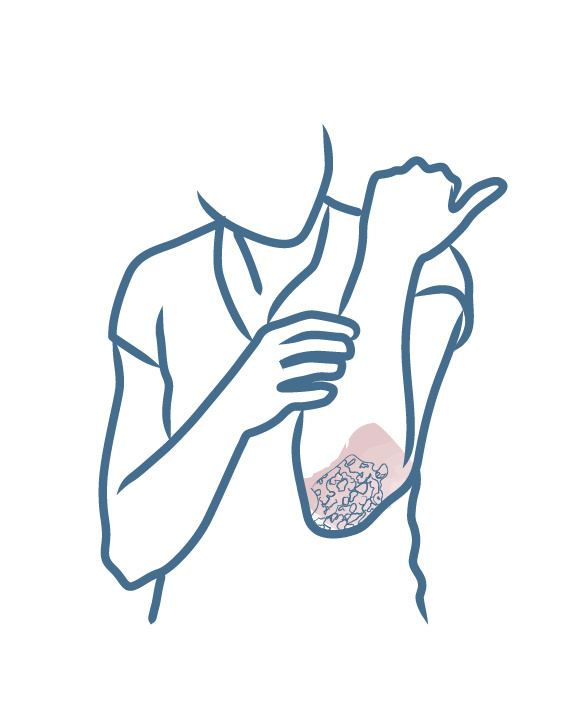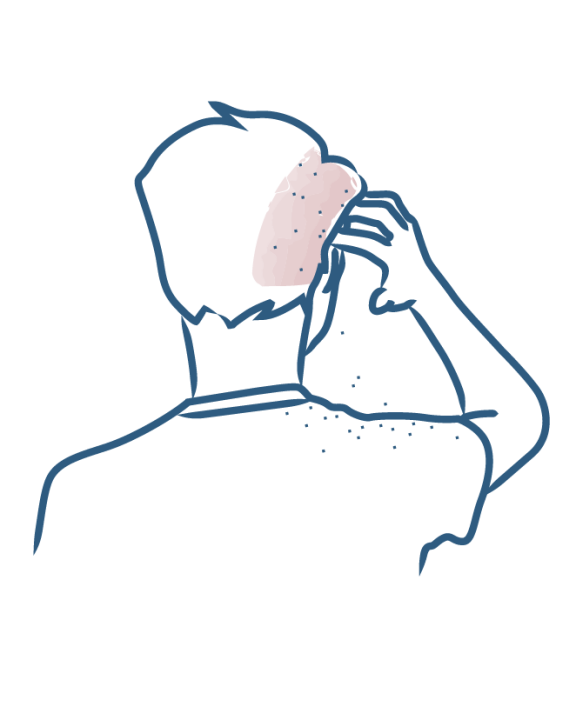
Psoriasis treatments
There are a large number of psoriasis treatments and they vary in terms of active ingredients, galenic form and route of administration. A person with psoriasis very often uses different therapies throughout their entire course of treatment. It all depends on the extent of the lesions, the frequency of flare-ups and the impact on daily life and quality of life. Keep reading to find out everything you need to know about psoriasis treatments.

Psoriasis: several types of treatments
The first treatments to consider are local. Topical corticosteroids have been used for several decades in the treatment of flare-ups, but their poor reputation can alarm patients. However, these types of topical corticosteroids are completely different to those often taken for months, even years, by general route. Topical corticosteroids have some local side effects but are generally very well tolerated when used according to medical prescription. Vitamin D derivatives are also frequently used, alone or in combination with topical corticosteroids. They are also well tolerated, with the exception of a few cases of skin irritation at the beginning of treatment.
Oral treatment
There are several psoriasis treatments that are taken orally, including methotrexate. This medicinal treatment limits cell proliferation in psoriasis but also in other inflammatory diseases. It is administered orally or by injection, once a week. Cyclosporine is an immunosuppressive drug, initially designed to limit the risk of rejection during organ transplants. Two other molecules are available, although less used: acitretin and apremilast.
Biotherapies
Biotherapies are probably the most talked about drug class in psoriasis treatment today. This is because they have revolutionized the management of the disease, both in its skin and joint form. Biotherapies are given by injection, once or several times a month, depending on the treatment protocol. New biotherapies are regularly being introduced and many diseases can be treated with them. However, biotherapies are intended for moderate to severe psoriasis with a significant impact on patients' quality of life.
Phototherapy
Phototherapy is a medical technique at the juncture between local and general treatments. It uses the beneficial, anti-inflammatory and immunosuppressive effects of ultraviolet rays (known as UV rays) on psoriasis plaques. These are the same as the beneficial effects that many people with psoriasis experience during the summer, when there is more sunlight. Phototherapy is only given under medical supervision and in short treatment cycles.
Hydrotherapy
Doctors may suggest hydrotherapy for psoriasis, to help relieve the patient’s symptoms. Some thermal waters are known to be anti-inflammatory and soothing. They can have a beneficial effect, both on the skin and psychologically. Hydrotherapy treatment provides a good opportunity to relax, to learn how to better look after yourself and to meet other people with the same skin disease.
Complementary treatments
Alongside these treatments, many additional/complementary treatments, also known as natural psoriasis treatments, are available over the counter in pharmacies or online. The most well-known natural treatments are based on homeopathy and aromatherapy, but there is also phytotherapy, probiotics, micronutrition, and so on. At the same time, patients often make appointments for osteopathy, sophrology, hypnosis, acupuncture, etc. The results of these types of treatment depend on many factors. In some cases, these types of treatment can be a useful accompaniment to treatments prescribed by doctors. In other cases, they don't make much difference. So, what should you do? Try everything? Give up? The most sensible approach is to try the therapies that best suit you, without spending too much time or money on them. Psoriasis treatments are so varied that it is sometimes difficult to make sense of them all. There are four key points to remember:
- Psoriasis treatments are not definitive, only symptomatic. They are effective in relieving flare-ups but do not solve the underlying immune and skin problem. Clearly, there is no treatment that can completely and permanently "cure" or "get rid of" psoriasis.
- Psoriasis treatments must be administered correctly, otherwise they will be ineffective. You cannot simply put on your cream or take your tablet whenever you want!
- Psoriasis treatments vary in effectiveness from one person to another, because every case of psoriasis is different. What works for your friend may not work for you. But don't panic! Solutions do exist and if one treatment doesn't work, you can try a different treatment, agreed upon with your dermatologist.
- Psoriasis treatments must be combined with daily cleansing and skin care measures: in particular, cleansing and hydrating the skin with products that are gentle and suitable for irritated skin.
Our care routines
Psoriasis-prone skin


